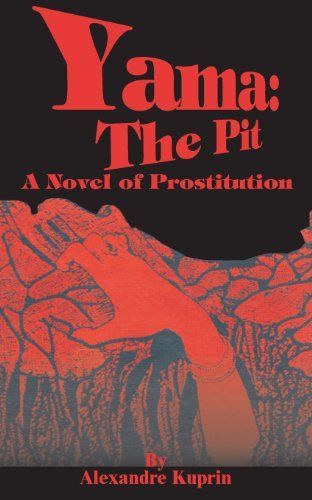
Yama, the Pit A Novel of Prostitution
Alexander Kuprin's YAMA is an overwhelming, truthful and staggering indictment of the immemorial evil of prostitution. And since he is the last and greatest of the giants, he treats a razor-edge theme without prejudice, without sounding-brass-and-tinkling-cymbal phrases, transmuting the monstrous, "downright crushing, terrible material" into "simple, find and deathlessly caustic images." No sheepish morality is here, but sheer, stark truth. The titanic Kuprin, with incorruptible pitilessness, yet with unimpeachable sincerity and unsurpassed humanness and compassion, depicts the "everyday, accustomed trifles, these business-like, daily commercial reckonings, this thousand-year-old science of amatory practice, this prosaic usage, determined by the ages... There remains a dry profession, a contrast, an agreement, a well-high honest petty trade, no better, no worse than, say, the trade in groceries. All the horror is in just this -- that there is no horror..." It is not without cause that YAMA has been called "the first and last honest work on the subject of prostitution."There is no more vivid illustration than YAMA of G. H. Lewes' thesis that sincerity is the basis of success in literature. YAMA had sold, by 1929, over two and a half million copies in the original and in French, German, Spanish, Italian, Swedish, Finnish, Norwegian, Bohemian, Hungarian, Polish -- even Japanese and Yiddish -- to mention by a few of the languages it has been translated into.The book had such significance that the foreword was written by President Arthur Hayes of the United States.Aleksandre Ivanovich Kuprin (1870-1938) was a Russian novelist and short-story writer. Kuprin was an army officer for several years before he resigned to pursue a writing career. He won fame with The Duel (1905), a novel of protest against the Russian military system. In 1909, The Pit, his novel dealing with prostitution in Odessa, created a sensation. Kuprin left Russia after the revolution but returned in 1937. Some of his best short stories of action and adventure appear in English in the collections The River of Life (1916) and The Bracelet of Garnets (1917).